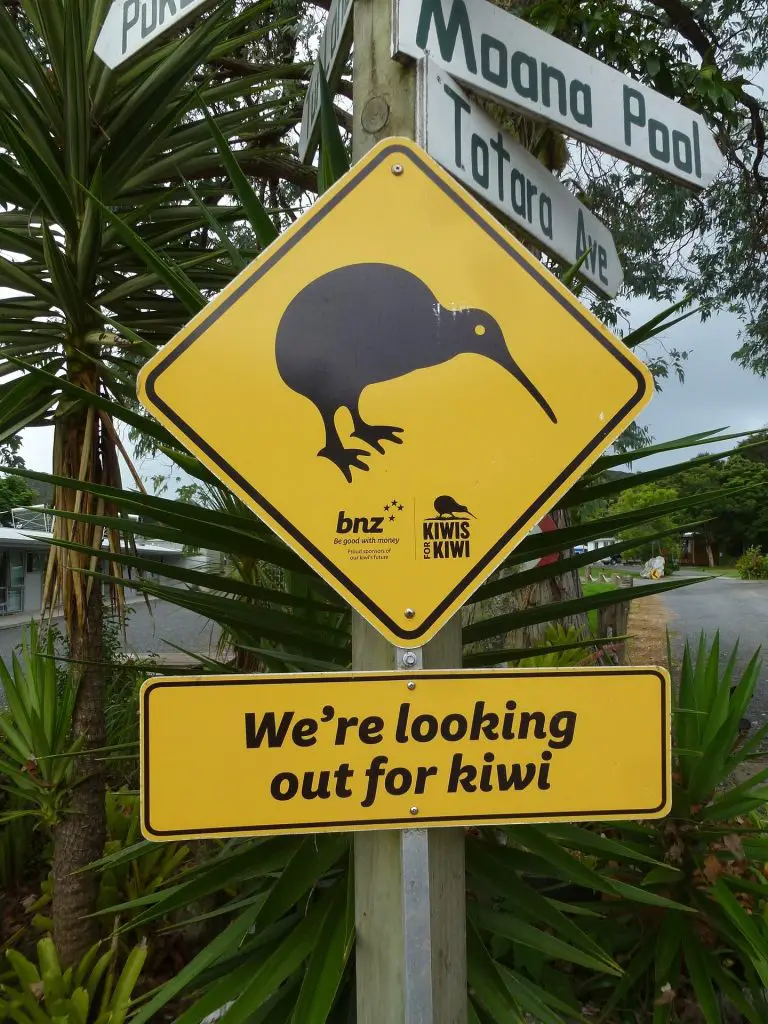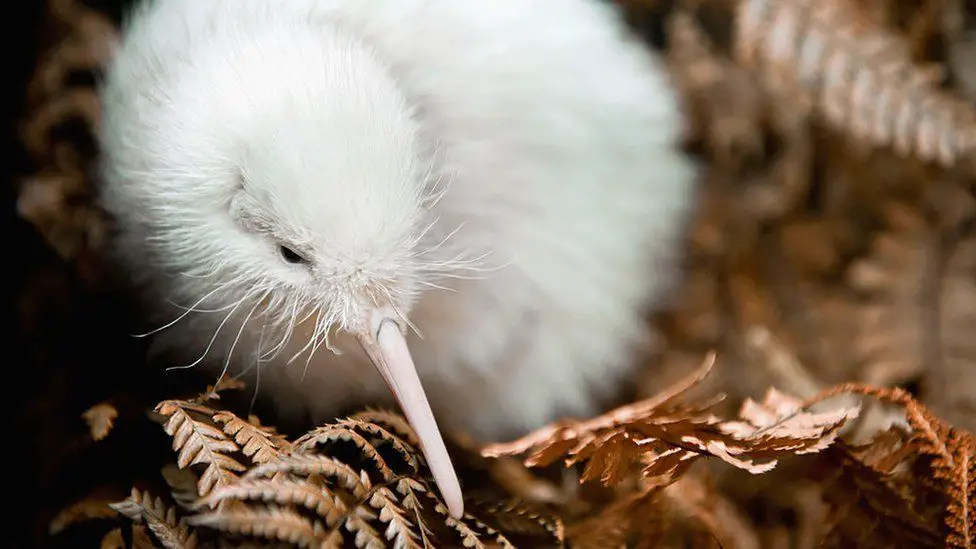The New Zealand Kiwi is a symbol of the country
The New Zealand Kiwi is a symbol of the country, but it is also one of the most endangered species there. Depending on the species, the kiwi is either “recovering” or “nationally critical,” despite decades of conservation efforts.
A young hunting dog named Tip follows a goat route up through the dense foliage of New Zealand‘s wet forests, her ears perked and her nose snuffling excitedly. She abruptly halts to examine a tantalizing perfume, discovering the sweet, musty kiwi.

After giving Tip a minute to catch her breath, a collar emits a low-level electric pulse to tell her that the bird is not welcome. She flinches momentarily as the electric signal causes her to associate the fragrance with pain.
The tip is awarded a pat and a “good dog” when she avoids the second kiwi, which is another freeze-dried bird positioned a few meters up the route. She proved to be proficient at avoiding kiwis and thus her training is valid for another year.
Locals begin to arrive in a little piece of bush in Mamaku, close to Rotorua on the north island, one by one, braced against the frigid winter morning. They bring their dogs along, and the dogs’ excited yapping and barking soon drown out the birdsong. To help protect kiwi in the wild, the organization Save the Kiwi is hosting a training session to educate dogs to avoid them.
Desperate conservation attempts have led to the trialing of devices like the electric collar, which has prompted worries about the welfare of the canines as well as the kiwi, and their usage is prohibited in certain countries abroad.

The Department of Conservation estimates that there are now 68,000 kiwis and that around 2% every year, or about 20 per week, of the population, dies due to unchecked habitat loss. Ninety-five percent of kiwis born in the wild don’t make it to maturity because they are murdered as babies. Outside of stoats, weasels, and ferrets, dogs are the most common cause of kiwi extinction. Although it is impossible to determine how many birds are killed annually by dogs, Save the Kiwi believes it to be about 400.
Kiwis are easy prey for dogs because they have weak wings and chest muscles and no sternum.
Blake Cole, a kiwi avoidance trainer with Save the Kiwi, explains, “There is nothing shielding them – they are literally just two enormous drumsticks with a head.”
Aside from predator control, breeding programs, conservation, and research, avoidance training is only one instrument in the larger efforts to safeguard kiwis in New Zealand, where trainers like Cole spread awareness about the need for responsible dog ownership.
The training method relies heavily on the use of actual, dead kiwi, some of their stinky feces, and feathers from their nests to spark the dogs’ attention. The program is now making use of cutting-edge tech. An ex-engineer named Cole has joined up with mechatronics students at the University of Canterbury in New Zealand to build a walking kiwi that can imitate the bird’s distinctive stride and serve as an intriguing moving target for the dogs.
In New Zealand, people have mixed feelings about using electric collars for dog training. A professor in animal welfare at Massey University, Kat Littlewood, argues that some dogs may have a more terrible experience than others when exposed to the pulses.
Rather than employing punishment, she recommends utilizing muzzles and leashes for training purposes.

Cole believes that it is best if dogs are kept on leashes or not let in the bush at all, but if they must be there or wander into kiwi territory, he thinks the lessons will help.
It’s important to convey the idea that it’s not safe to let your dog out in the middle of the night if you don’t want to spend half an hour worrying about what he could be up to. They may as well be hunting possums, but people seem to believe they are.
He also notes that the collar is the most useful weapon the team currently has. It’s the best we can do with the resources at hand. In order to build a negative connection, Cole claims trainers always utilize the minimum setting.
Pet owners are strongly discouraged from enrolling their animals in the classes and instead should take every precaution to guarantee their dog has never been exposed to a kiwi. Some people are bringing their pets to the sessions as a precaution, however.
Nikki and Mike (they wouldn’t reveal their last name) are bringing their “blue heeler” cow dog, Fletcher, to his first session. For Mike, “the kiwi aversion is a no-brainer” since the whole family loves to spend their weekends hiking and camping in the mountains and the wilderness.
As Nikki points out, “their innate impulse is to go for a bird,” and kiwis have no defenses. To put it another way, “we’ve got to do our part.”
Hollie Beaumont, who was also walking her blue heeler Freddie, said that in certain areas of New Zealand, canines are only permitted if they have been through avoidance training. To Beaumont, an avid trail biker, training Freddie “with the fragrance of a genuine kiwi” was essential.
It’s the responsible thing to do as a dog owner, she explains. Having a dog is a treat, but having a kiwi is even more special.
If you’re joining us today all the way from Japan, we have a favor to ask. Throughout almost 2 decades of publication, hundreds of thousands of readers have relied on the Guardian’s courageous research in times of crisis, anxiety, solidarity, and optimism. We’re able to remain accessible to everyone and fiercely autonomous because to the over 1.5 million patrons we’ve attracted from 180 countries.
The Guardian is not owned by a corporation or a wealthy individual, like many other publications. Just the willpower and enthusiasm to produce influential worldwide reporting that is never swayed by commercial or political considerations. This kind of reporting is crucial for a healthy democracy, for maintaining a sense of justice, and for holding the powerful to a higher standard.
Also, everyone is welcome to read this information for free on our website. For the sake of a level playing field in terms of knowledge, we must act as we do. Increasing numbers of people can follow the news that matters, learn how it affects them and their communities, and be motivated to take action as a result. Access to free, high-quality, honest news may help millions of people worldwide.





